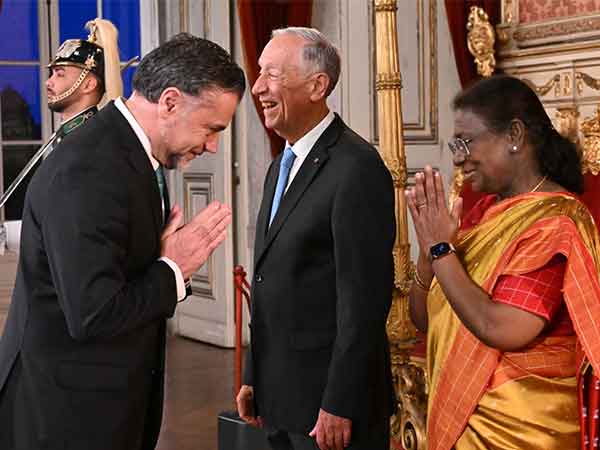Despite international criticism, China approves resolution to overhaul Hong Kong's electoral system
Mar 11, 2021

Beijing [China], March 11 : Despite fierce international condemnation, China's national legislature has approved a resolution to drastically overhaul Hong Kong's electoral system to ensure only 'patriots' can rule the city, a move which is feared to further smother opposition voices in the city.
The National People's Congress (NPC) on Thursday passed the resolution by a near-unanimous vote, paving the way for the biggest shake-up to the city's electoral system since its return to China in 1997, reported South China Morning Post (SCMP).
A total of 2,895 delegates voted in favour of the proposal, which will authorise its standing committee to finalise the details of the electoral reform process and applauded for the longest period after the Hong Kong electoral proposal was passed.
Under the new electoral system, NPC members and the Chinese People's Political Consultative Conference, the country's top political advisory body, will be part of the Election Committee in the selection process of the city's leader next year, reported Xinhua news agency.
Less than a year after imposing the draconian National Security Law, China last week had launched a legislative process for drastic electoral system reform in Hong Kong, which could benefit the pro-establishment camp and further quash the political opposition in the city.
The Election Committee will be expanded to add these 300 Beijing loyalists and the Legislative Council will also be expanded to 90 seats from 70.
Although Chinese officials have insisted that the measures are necessary to establish a 'democratic electoral system with Hong Kong characteristics', critics have warned that it would limit the space for the opposition in the city and roll back years of effort to liberalise the system, reported SCMP.
Ahead of the NPC's vote on the electoral measures, Britain said the proposed changes to Hong Kong's electoral system would be another attack on the former British colony's rights and freedoms.
The changes also come amid widening enforcement of the draconian national security law that Beijing imposed on the city last summer.
Earlier, the European Union warned Beijing to "carefully consider the political and economic implications" of any decision to reform the electoral system of Hong Kong, saying that the bloc is "ready to take additional steps" in response to any further serious deterioration of political freedoms and human rights in the city.
Furthermore, the United States has also condemned the continued assaults on the city's democratic institutions.
Speaking at the regular press briefing, US Department of State spokesperson Ned Price last Friday (local time) said that bringing reforms to Hong Kong's electoral system is an attack on the region's autonomy and freedoms and the democratic processes.
The New York Times reported that the strategy would further concentrate power in the hands of the Communist Party in Hong Kong and decimate the political hopes of the territory's already beleaguered opposition for years to come.



















